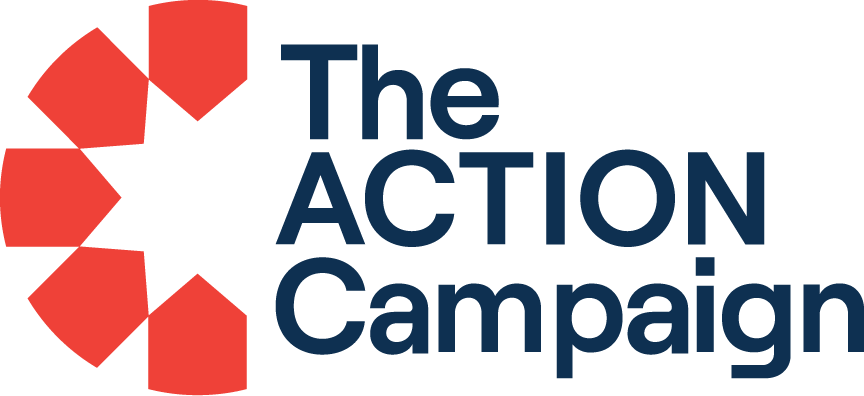Legislative State-of-Play
AHCIA Gains One-Third of Congress as Cosponsors
The Affordable Housing Credit Improvement Act (AHCIA) has been breaking records since its introduction on May 11. Notably, in just 11 weeks, the House and Senate bills, H.R. 3238 and S. 1557, have secured the support of one-third of Congress. The House version of AHCIA is now the most cosponsored of all bipartisan tax bill introduced in the 118th Congress thus far!
As previously reported, the bill was introduced in the House with a record 66 Representatives signing on as leads or original cosponsors. The bill reached 151 House cosponsors last week, evenly split between Republicans and Democrats, with 35 of those cosponsors added in July. The bill is gaining support at more than twice the speed that it did when introduced in the previous Congress. In the Senate, there were eight new cosponsors in July, bringing the total number of cosponsors to 28. There are now more Senate Republican cosponsors on the bill than there were in the entirety of the previous Congress.
These cosponsor numbers help our bill leads make a strong case to House leadership that the AHCIA must be prioritized in congressional tax negotiations. Please see this blog post containing more information, including the list of Members who cosponsored in July.
The HOME Program — a Key “Gap Filler” Resource for Housing Credit Deals — Could Face Significant Cut in FY24
Recently, there have been significant appropriations developments that could impact Housing Credit projects’ financing. The HOME Investment Partnerships Program (HOME), which is often a source of gap financing for the Housing Credit, has been targeted by House Appropriators for a cut that would bring funding to the lowest level in at least a decade. HOME is typically part of the financing stack for approximately 15 to 20 percent of all Housing Credit units financed in a given year.
The House Fiscal Year 2024 (FY24) appropriations measure would reduce funding by $1 billion (or 67 percent) to just $500 million. This cut is far greater than necessitated by the spending cap established by the debt limit law passed just last month. The Senate has proposed level funding the program at $1.5 billion. The $1 billion gulf between those measures presents a serious challenge as congressional negotiators work to reconcile their FY24 appropriations legislation, posing a threat to the viability of the Housing Credit and affordable housing in general.
There is an urgent need to increase resources for the production and preservation of affordable housing. ACTION’s allies at the HOME Coalition are advocating for Congress to enact the Senate’s proposal to preserve funding for HOME at the current $1.5 billion. The government’s fiscal year ends on September 30, which means it is important for advocates to weigh in now. ACTION encourages its members to amplify the requests made by the HOME Coalition.
Global Minimum Tax
On July 13, the OECD published updated administrative guidance about implementation of Pillar II of the Global Minimum Tax (GMT). The guidance does not change the protections to the Housing Credit that the Administration secured in the OECD’s February administrative guidance. Had the Administration not secured this protection, the Housing Credit would have faced an existential threat, as a number of US-based subsidiaries or divisions of international companies might have ceased investing in the program.
During a Ways & Means Committee hearing on the GMT on July 19, the Deputy Assistant Secretary of the Treasury for International Tax Affairs reiterated to the committee that the Housing Credit remains protected. He also noted that the Administration went to great lengths to educate the OECD about the Housing Credit and the importance of protecting it under Pillar II, since it is the “largest and most effective” affordable housing program in the US. As a reminder, ACTION was one of 30 organizations that sent a letter to Treasury Secretary Janet Yellen in 2022 urging the protection of the Housing Credit under the GMT. ACTION will continue monitoring this issue and how it may impact the Housing Credit.
What's Next?
All these recent developments on the AHCIA, annual appropriations, and the contentious OECD negotiations provide insight on what will dominate the congressional agenda this fall. Congress is not likely to finish its work on appropriations by the September 30 end of the fiscal year, and, if so, will need to pass a continuing resolution to avoid a government shutdown. It is very possible that appropriations work could dominate much of the fall as Congress seeks to finalize bills — likely in an omnibus or a series of so-called “minibus” bills — by calendar year-end. In the past, such a bill has sometimes included a tax title, and there is a growing call from both sides of the aisle to address tax issues this year due to the contentious implications of OECD’s Pillar II and a slew of expired or expiring tax provisions.
If a tax title hitches a ride on the year-end spending deal, we will need high AHCIA cosponsorship numbers if it is to be included. There is a small possibility that Congress will negotiate a separate, stand-alone tax reform package this year. Either way, it is essential for advocates to remind their Members of Congress to prioritize the Housing Credit in any end-of-year legislation.
Help Keep up the Momentum for AHCIA
Now is a great time for Housing Credit advocates to reach out to their Members of Congress and ask that they cosponsor the AHCIA. Congress is currently out of session on its August recess — the longest Congressional recess of the year. To help, ACTION has prepared an in-district advocacy guide, detailing steps advocates can take to build support for the Housing Credit during the recess — everything from a quick post on social media if you have only a few minutes to an op-ed if you have an hour or two. If you have even more time, we especially encourage ACTION members to contact your Members of Congress’ offices ASAP to invite them to view the Housing Credit in action in their communities, including groundbreakings, ribbon cuttings, or site visits.
The ACTION Campaign has a number of advocacy materials to help support your outreach, including updated National, State, and Congressional District Fact Sheets, updated statewide ACTION Campaign member lists, sample emails for outreach, as well as detailed information about the legislation in our Advocacy Toolkit. We also have a complete list of cosponsors from last Congress, where you can check if your Senator or Representative has cosponsored in the past, as well as the most up-to-date list of current cosponsors.
Administration Updates
On July 27, the White House announced a compendium of recent actions the Administration has taken to lower housing costs and boost housing supply, especially for low- and middle-income families. Among these actions is the move by HUD to lift the cap on a Housing Credit pilot program, which we covered in last month’s newsletter. These actions build on the Administration’s Housing Supply Action Plan, which was released in May 2022.
The same day, the White House also publicized a companion series of actions the Administration – along with state, local, and private sector partners – has begun to take to protect renters, as about 35 percent of the US population lives in rental housing. These actions build on the Administration’s Blueprint for a Renters’ Bill of Rights, which was released in January of this year.
Property Insurance
Recently, there has been growing attention to the drastic increases in insurance costs for residential real estate, including for Housing Credit properties. In addition, some major insurers are pulling out of certain states and many smaller insurers have folded in the past year. While higher insurance costs are broadly impacting housing — affordable, market-rate, and single-family — properties with rent restrictions have limited options for addressing these increases, thus these increases are particularly problematic for both prospective and existing Housing Credit properties and seriously threaten their ongoing viability.
ACTION will be working with its members to explore policy proposals to alleviate this burgeoning crisis. ACTION Campaign members are encouraged to submit their ideas.
Housing Credit Research
- A July 11 analysis from the Urban Institute finds that, from 2000-2019, the Housing Credit has helped finance about a quarter of all new apartments built across the country. Further, it found that, since the early 1990s, the Housing Credit has financed between 3-5 percent of all new housing units completed across the country. It also finds that in some mostly rural states, the Housing Credit helped finance almost half of all new apartments. Lastly, it found that Housing Credits have funded at least 15 percent of new multifamily housing in 40 states.
Housing Credit in the News
- In July, the bipartisan political organization No Labels endorsed the AHCIA in its policy platform, entitled Common Sense.
- On July 23, in an interview on Fox News Sunday, Chair of the White House Council of Economic Advisers Jared Bernstein urged Congress to expand the Housing Credit, in line with President Biden’s FY24 Budget Proposal.
- A July 21 piece in WFIE covers AHCIA Senate Republican lead Todd Young (R-IN)’s affordable housing tour of Indiana, where he stressed the need for passing the bill.
- The July issue of Cityscape contains a research paper, mentioned in ACTION’s March newsletter, examining Housing Credit spillover effects in Los Angeles. It concludes that, despite misplaced suspicions by critics, the Housing Credit has positive spillover effects in the L.A. region, regardless of the characteristics of the neighborhoods and those of the properties themselves. Andrew Jakabovics, VP of Policy Development & Research at ACTION co-chair Enterprise Community Partners, was a coauthor.





3 Comments